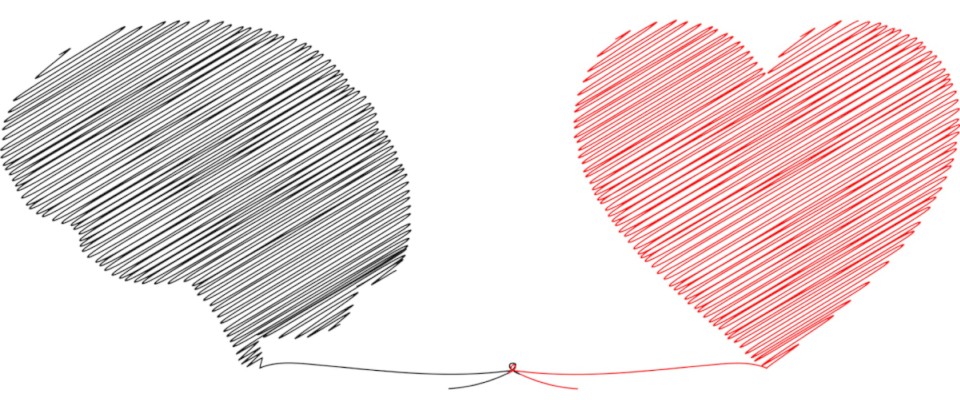As I am listening to Iain McGilchrist’s “The Master and His Emissary“, different images keep occurring to me. Some of these images leave me in a state of deep resonance. One way to express this state is: life without faith is like accepting that I am merely a (biological) robot.
The first image I’d like to share is a visual description of how I experienced a recent conversation with two people—a very good friend and his partner, who I met for the first time during that call. Many thoughts occurred to me that I could have brought up. Each of these thoughts felt like a potential exit on a highway system. By taking it, I would request a change of direction, and the conversation would follow a different trajectory altogether.
So, how did (and do) I actually choose which thoughts to express, which exits to take? Applying the framework of goals and strategies, I might come up with some description of what my goals during the call were. Ultimately, though, I have to confess the very limited insight into my own thinking (or thought selection) process: I was (and am) pretty much winging it. It also seems impossible to know which thought (or exit) would actually lead me—or the conversation, that is—to a specific place to which I would want to go.
Even more importantly, if I had such a place in mind, say I wanted my conversation partners to agree with a specific premise, then it would not feel like a conversation so much as me being a tour guide. A less euphemistic term might be lecturing. And if I do not end up at the desired outcome, then obviously I have failed my mission.
This brings me to a second image. McGilchrist frequently makes reference to how the left hemispheric view is one that makes the world graspable. If we want to exert control over what is happening—to our bodies and beyond—we need to have a clear model for the future and implement it. One central aspect of this model is prediction. We fore-tell a future in which our goals are achieved. The image that came to mind was that of a hand grasping a bird around its neck. Depending on the lack of skill with which we grasp, we might also strangle it though.
The alternative approach is that of allowing what is, without fear of reality, as it reveals itself. Complementary to the term predict or prediction, I would use prepare and preparation. If we are prepared, we are in a state of readiness for the future. We are setting the stage, and then are willing to let happen what happens. The accompanying image is that of holding a bird in an open hand. So long as the bird is content and experiences the hand as a welcome place to rest, it may sit there.
And that to me, roughly speaking, is the difference in experience between the two modes of thinking about the future. The mode which is supported by science, rationality, propositional logic, statistics, planning, and goal pursuit is that of the left hemisphere. It creates a projection into the future along a predicted path—one which we only control insofar as reality allows us to.
The other mode is one of faith. It accepts the limits of my acting in and on the world. It looks into the future with a hopeful sense of joyous expectation—if all preparations have been made. There are however no guarantees. And if one ends up somewhere unpleasant, well, one simply needs to move on.
Two final images, related to this topic, come to mind right now. The first is how I imagine that our communication abilities have shifted our awareness from an “accepting the world as it is” to an “expecting the world to behave” state. I unsuccessfully tried to find reliable statistics—I know, what irony. Given how much mail still goes missing in the 21st century, I can only imagine how unreliable mail was in, say, the 18th or 19th century.
Imagine you are living in 1750. You want to message back and forth with a friend a few hundred miles away. All you can really do is send a letter and hope it arrives. If you do not hear back after a few weeks, maybe just send another one? Compare that attitude or approach to what the customer and consumer of modern means—such as telephone and email—have come to expect.
It seems to me that our approach to life as a whole has changed from one of hopefully (and faithfully) acting in and on the world, but never certain of the outcome to one of strong expectations. We now hold firm beliefs about whatever outcome we imagine—and expect rather than hope—to achieve with relative more certainty.
The final image is that of an activist shouting—angrily and upset—at someone they disagree with on a topic dear to that person’s heart. You may at times feel strongly that you want to move a conversation into a specific direction: “Why can’t this person agree with me on this?” And given our well-developed scientific mind and training, we grasp the world, and then slowly squeeze. And with everything we say, we kind of choke the conversation a bit more. Ultimately, the bird is dead.
For some reason, we seemingly would rather see a dead bird in our grasp than one we cannot control flying away into the sky. It may never return, but at least we didn’t kill it.
That, to me, is the way without a goal. I can prepare myself. I can be ready for the bird to land on my palm. I can be patient and hoping—against any reason the left hemisphere could provide. And once the bird lands, man, the temptation to grasp and hold on can be really strong. And it takes a lot of practice to remain open, and allow the bird to leave whenever it wants.
